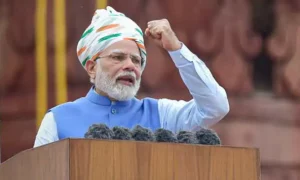Hailing it as a correct move of unchanging the rates on small saving schemes such as PPF (Public Provident Fund), India’s largest lender State Bank of India in its research report has come up with a three-fold strategy, which is considered to be beneficial for all.
The central government recently has rolled the steep interest rate cut on small saving schemes such as PPF (Public Provident Fund) and NSC, saying it was an oversight.
Economists at SBI said, ” As we are currently going through an unprecedented pandemic crisis, we believe the government has taken the best decision of not changing the rates on small saving schemes as we are currently going through an unprecedented pandemic crisis.”
The three-fold strategy economists at SBI suggests in their report are:
1) Income tax rebate on interest on Senior Citizen Savings Scheme: “The interest on Senior Citizen Saving Scheme is fully taxable. The Feb’20 outstanding under Senior Citizen Saving Scheme was ₹73,725 crore. If the amount is given full tax rebate/up to a threshold level it will have nominal impact on the exchequer.” Under this scheme, a senior citizen can deposit around Rs 15 lakh and the current interest rate is 7.4 per cent.
2) A serious thought could be given of whether interest rates offered on deposits in India are linked to an age-wise interest rate structure, the report suggests in its strategy. “Interest rates offered on deposits in India are also demography agnostic (barring the separate rate for senior citizens). However, going forward, in our view, this approach should shift to an age-wise interest rate structure, with rates linked to long-term bank deposit rates till a certain age group, and offering a higher than market rate over that age group.”
The age bifurcation report suggests, this could, in one go, serve the multiple purposes of (a) ensuring a lower lending rate structure, (b) adequate returns for senior citizens, (c) lower interest expenditure and (d) an alternative to floating rate deposits.
3) The third but pillar of three-fold strategy, SBI report points out, ” We expect the government to maintain a parity in interest rates between organised sector/EPF and unorganised/PPF for the larger goal of social security.”
The SBI report also states, “As small saving scheme rates are adjusted in every quarter, Government should ideally remove the 15 years lock-in period for PPF and give the investors the option to withdraw their money within a stipulated time with some sort of disincentive of course.”
PPF is a government-backed, zero-default risk, long-term small savings scheme akin to quasi-floating rate deposits with the objective to provide retirement security to self-employed individuals and workers in the unorganised sectors.





































